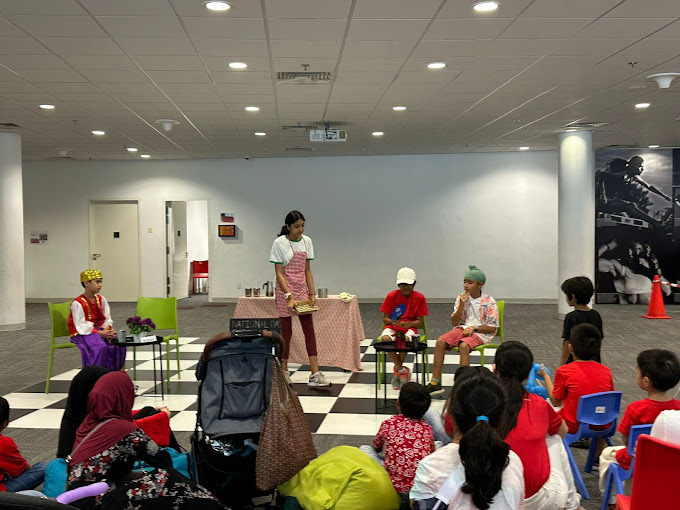The Intersection Of Drama And Technology For Young Learners
Hello, dear readers! Today, I’m excited to delve into the dynamic world of drama classes for 4-year-olds and their important role in fostering the development of emerging writers. As part of the ‘Spotlight On Skill’ initiative led by Deepika Rajani at Tamasha, a center of creativity, we aim to support the aspirations and projects of budding writers from all backgrounds. In this article, we’ll introduce you to a range of writing programs, showcasing the various opportunities they provide and assisting you in finding the perfect match for your artistic ambitions.
Introduction
As technology continues to shape the world around us, its impact is felt across various fields, including education. One area where this intersection is particularly exciting is in the combination of drama and technology for young learners, such as 4-year-olds. Drama is a vital aspect of early childhood education, promoting creativity, communication skills, and emotional intelligence. By incorporating technology into drama classes, educators can enhance the learning experience and open up new avenues for engagement and growth.
In this article, we will explore how technology is revolutionizing drama education for young learners and the benefits it brings to their development.
Enhancing Storytelling with Augmented Reality
Augmented reality (AR) is a powerful tool that allows young learners to experience immersive storytelling. By overlaying digital elements in the real world, AR can bring stories to life, allowing children to interact with characters and settings in a whole new way. For example, during a drama class, children can use AR glasses or apps to see and engage with virtual characters or objects from a story.
This technology adds a layer of excitement and wonder to traditional storytelling and drama activities, fostering imagination and creativity. It can also provide opportunities for interactive learning, as children can influence the direction of the story through their choices and actions.
Virtual Drama Classes and Online Learning
The COVID-19 pandemic accelerated the adoption of online learning, and drama classes are no exception. Virtual drama classes allow young learners to participate in drama activities from the comfort of their own homes, using video conferencing tools and interactive platforms.
Online drama classes can offer various advantages for young learners and their families:
- Flexibility: Parents can schedule classes at convenient times, allowing for better integration with family routines.
- Accessibility: Children from remote or underserved areas can access high-quality drama education that may not be available locally.
- Global Connections: Online drama classes can connect young learners with peers from different parts of the world, fostering cross-cultural understanding and collaboration.
Educators must adapt their teaching strategies to the virtual environment, making use of interactive tools, breakout rooms, and digital resources to engage children effectively.
Incorporating Interactive Games and Apps
Technology provides an abundance of interactive games and apps that can be integrated into drama classes for young learners. These resources can help children explore various aspects of drama, such as voice modulation, character development, and improvisation.
Interactive games and apps offer a range of benefits for young learners:
- Engagement: Gamification elements, such as points and rewards, keep children motivated and invested in the learning process.
- Feedback: Apps can provide immediate feedback to learners, helping them understand their performance and areas for improvement.
- Personalization: Some apps allow for personalized learning experiences, adapting the content to match each child’s skill level and interests.
Educators can use these tools to supplement traditional drama activities and create a more dynamic and engaging learning environment.
Promoting Language Development
Drama and technology can work together to support language development in young learners. For instance, children can use language-learning apps that incorporate dramatic elements, such as role-playing scenarios and storytelling exercises. These activities encourage children to experiment with language, practice pronunciation, and expand their vocabulary.
Additionally, technology can facilitate collaboration between young learners and language experts from around the world. For example, children can participate in virtual workshops led by professional actors or storytellers who speak different languages. This exposure to diverse linguistic and cultural perspectives enriches the children’s learning experience.
Encouraging Collaboration and Teamwork
Technology can help facilitate collaboration and teamwork among young learners in drama classes. Online platforms offer tools such as shared digital whiteboards, collaborative storytelling apps, and virtual stages where children can work together on drama projects.
Collaboration and teamwork foster social skills and emotional intelligence in young learners. By working with peers to create and perform a drama piece, children learn to communicate effectively, listen to others, and respect different perspectives. These abilities are critical for success in school and beyond.
The Role of Educators and Parents
The successful integration of drama and technology for young learners relies on the collaboration of educators and parents. Both groups play critical roles in creating a supportive and enriching environment for children to thrive.
- Educators should stay up to date with the latest technologies and trends in drama education. By exploring new tools and resources, they can create innovative lesson plans and activities that captivate young learners.
- Parents should actively support their children’s involvement in drama and technology. This includes providing access to necessary devices and apps, encouraging participation in drama activities, and communicating with educators to stay informed about their child’s progress.
Conclusion
The intersection of drama and technology for young learners presents exciting opportunities for enhancing early childhood education. By combining the creative and expressive aspects of drama with the innovative possibilities of technology, educators can provide young learners with dynamic, engaging, and meaningful learning experiences.
As technology continues to evolve, we can expect even more innovative approaches to integrating drama and technology in the classroom. By embracing these advancements, educators, and parents can help young learners develop the skills and confidence they need to succeed in an ever-changing world.
Stay tuned for more insightful blogs on how drama can positively impact children’s lives!





































